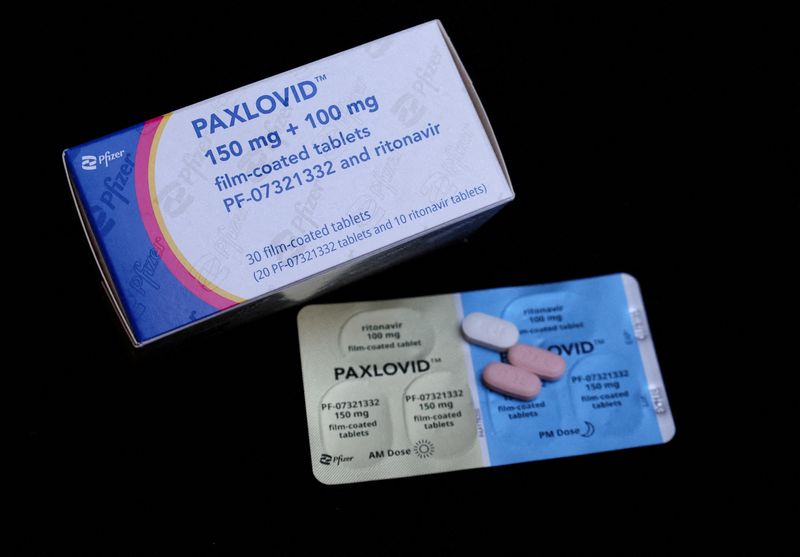By Manas Mishra and Michael Erman
(Reuters) - Clarity from Pfizer Inc (NYSE:PFE) this week on whether China's relaxation of its Zero-COVID policy and the surge in infections there will lead to a spike in demand for its antiviral Paxlovid could spur analysts to alter their 2023 sales forecasts for the treatment.
China was an insignificant market for Paxlovid before the strict infection-control policy was lifted, but Pfizer Chief Executive Albert Bourla said the company has since distributed millions of Paxlovid treatment courses there through a deal with China's Meheco.
Still, the status of deliveries later this year remains unclear. Talks between Pfizer and China's government health insurer bogged down over price, and the drug is only covered by China's broad healthcare insurance plan until late March.
Analysts say they have based their 2023 Paxlovid sales estimates primarily on public details of announced deals, with a token amount of estimated China sales from before the country dropped the Zero-COVID policy.
Their current estimates for over $10 billion in 2023 Paxlovid sales is less than half the $22 billion Pfizer is expected to report for 2022, according to Refinitiv data. Growth in China could help offset expected declines elsewhere as many governments have built inventories of the two-drug treatment.
Pfizer will report fourth-quarter and full-year 2022 results on Tuesday.
BMO Capital Markets analyst Evan Seigerman has forecast about $8.7 billion in global sales for Paxlovid in 2023, including $1.9 billion from the developed world outside of the United States, Europe and emerging markets, he said in an email, adding that he is hoping for more information.
"Given the opacity around access and broader availability in China, it is very difficult to model or forecast potential revenues from this product in the country," he said.
Billions of dollars in Paxlovid sales could be at stake for Pfizer.
Using treatment rates in other developed countries as a guide, UK data firm Airfinity forecast that total demand for outpatient COVID-19 treatments in China will reach 49 million courses over the next five months. The firm said around 23.5 million courses of Paxlovid would need to be administered over that period to keep the country's intensive care units from becoming overwhelmed.
Still, some outside experts question whether China has the capacity to buy and deploy Paxlovid in the places that need it now. A prominent Chinese government scientist said earlier this month that 80% of China's 1.4 billion population had already been infected, while 60,000 people have died.
Pfizer's tiered pricing structure sets the Paxlovid cost based on a country's economy. The U.S. government, for example, has paid over $500 per course. Media reports suggest that the current price per course in China is 1,890 yuan, or around $280.
But China has been asking to pay less. CEO Bourla has said China - the world's second biggest economy - is seeking a lower price than has been offered to lower middle-income countries.
Pfizer declined to provide pricing details. Government documents from Brazil - an upper middle-income country - show that Pfizer asked for $250 per treatment course there.
Even without a deal to sell Paxlovid broadly in China, the company can still sell it there on the private market.

Morningstar analyst Damien Conover said there is a lot of private wealth in China to support a higher price with direct purchases by patients.
China is "probably the only region that we're modeling a year-over-year increase in 2023" for Paxlovid, Conover said.